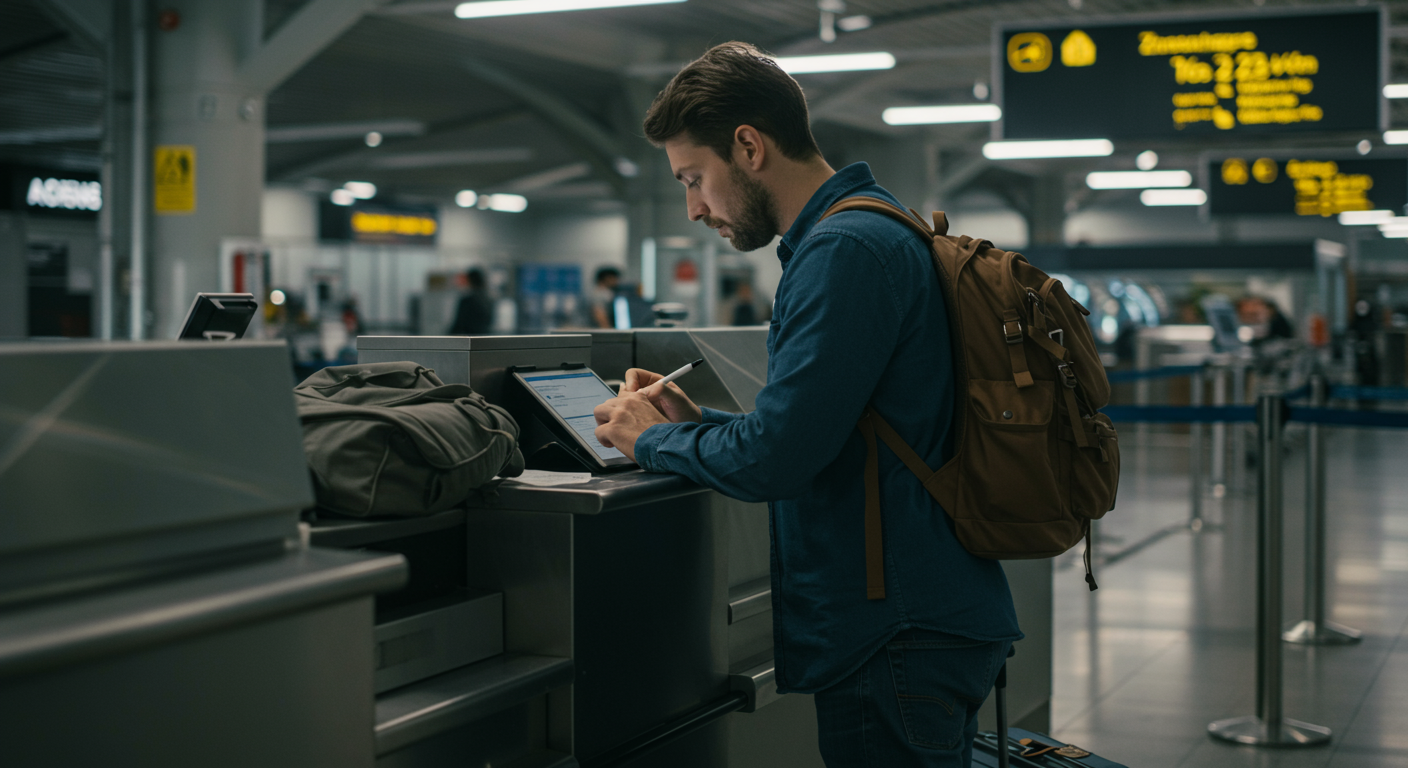Losing your luggage while traveling internationally is a stressful experience. It disrupts your plans, potentially costs you money, and adds unnecessary anxiety to your trip. This guide provides a clear, step-by-step action plan to help you recover your belongings and claim compensation, ensuring you're prepared for this unfortunate travel scenario.

The Problem: What's Really Happening
Lost luggage can mean a variety of situations, from delayed arrival to complete disappearance. The most common causes include mishandling during transfers, mislabeling, or simply being loaded onto the wrong flight. International travel adds complexity because of longer transit times, multiple airline connections, and varying baggage handling procedures at different airports. Understanding these potential issues helps you prepare and react effectively.
Why This Affects International Travelers
International travelers face unique challenges. If your luggage is lost, you might be stranded in a foreign country without essential items like clothing, toiletries, or medication. You'll also need to navigate unfamiliar airport procedures and communicate with airline staff who may not speak your language. Furthermore, international travel often involves stricter deadlines for reporting lost luggage and claiming compensation, adding urgency to the situation.
Root Causes Analysis
Several factors can contribute to lost luggage:
- Human error: Mistakes made by baggage handlers, such as misreading tags or loading luggage onto the wrong aircraft.
- Technical failures: Issues with conveyor belts or scanning systems within the airport.
- Transfer issues: During connecting flights, luggage can be misplaced during the transfer process.
- Lack of communication: Poor coordination between airlines, especially with codeshare flights or interline agreements, can exacerbate the problem.
Step-by-Step Solution Framework
- Report Immediately: As soon as you realize your luggage is missing, go to the airline's baggage claim desk or the designated lost luggage office. Fill out a Property Irregularity Report (PIR). This is the most crucial step.
- Provide Details: Be ready to provide detailed information about your luggage, including the brand, color, size, and any distinguishing features. Include the baggage tag number. If you have photos of your luggage, share them.
- Get a Reference Number: Obtain a reference or file number for your PIR. This is essential for tracking your claim and communicating with the airline.
- Ask About Tracking: Inquire about the airline’s process for tracking lost luggage. Many airlines now use online systems that allow you to monitor the status of your claim.
- Keep Copies: Retain copies of all documents related to your lost luggage, including your ticket, baggage tags, the PIR, and any communication with the airline. This is important for your records.
- File a Claim: If your luggage is not recovered within a reasonable time frame (usually 21 days), initiate a formal claim for compensation.
Prevention Strategies
- Tag Your Luggage Properly: Use clear, durable luggage tags both inside and outside your bags. Include your contact information, but consider using a luggage tag that only shows your email address and phone number.
- Take Photos: Take photos of your luggage before you check it. These can be useful for identification and in case of a claim.
- Avoid Tight Connections: Allow ample time between connecting flights, especially when changing airlines. A longer layover reduces the chance of your luggage being transferred incorrectly.
- Consider a GPS Tracker: Place a GPS tracker inside your luggage. This allows you to monitor the location of your bags in real time.
- Pack Essentials in Carry-On: Pack essential items (medication, a change of clothes, toiletries) in your carry-on luggage to minimize the impact of lost baggage.
When to Seek Professional Help
- Lack of Airline Response: If the airline is unresponsive or slow to provide updates.
- Unfair Compensation: If you believe the airline's compensation offer is inadequate.
- Complex Cases: If your luggage contains high-value items or if the loss has caused significant disruption to your travel plans.
Consider contacting AirHelp for expert assistance. They can guide you through the claims process and potentially secure better compensation.
International Legal Protections
Several international conventions and regulations protect travelers:
- The Montreal Convention: This international agreement governs the liability of airlines for lost, delayed, or damaged baggage. It sets limits on the amount of compensation airlines must provide.
- EU Regulations (for flights originating in the EU): If your flight originates in the European Union, you are protected by additional regulations that provide specific guidelines for compensation.
Your Action Checklist
- Immediately Report: File a Property Irregularity Report (PIR) at the airport.
- Document Everything: Keep copies of all paperwork and communication.
- Track Your Claim: Use the airline's tracking system to monitor the status of your luggage.
- Understand Your Rights: Familiarize yourself with your rights under international law.
- Consider Professional Help: Contact AirHelp or other claim assistance services if needed.